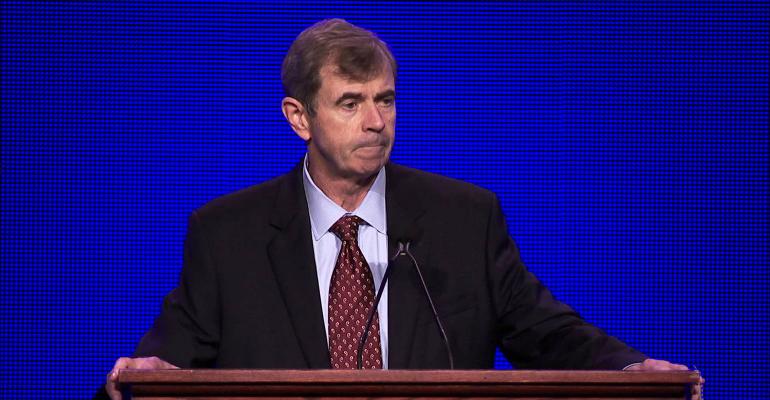Massachusetts Secretary of the Commonwealth William Galvin is conducting a sweep of several broker/dealers for information on target-date mutual funds, arguing that smaller retail investors in certain funds were subject to unexpected and significant tax liabilities.
Massachusetts’ Securities Division announced the investigation this week after being made aware of “potential tax disclosure issues” with certain b/ds’ target-date funds; such funds typically consist of a collection of assets that grow more conservative as the target date for the fund nears. They’re typically seen as a "hands-off" investment, according to Galvin’s office.
Galvin’s office sent letters to Vanguard, Fidelity Brokerage Services, T. Rowe Price Investment Services, American Fund Distributors and BlackRock, seeking a range of information, including marketing materials on, complaints about and any disclosures relating to the firm’s target-date mutual funds offered in Massachusetts, among other materials.
“Financial institutions can’t be permitted to protect one class of investors at the expense of another,” Galvin said in a statement about the sweep. “Investors need to be made aware of the risks involved and the tax liabilities they could face in certain circumstances, and I want to make sure institutions are being upfront about these risks.”
According to a spokesperson with Galvin’s office, the sweep came about, in part, due to news reports about Vanguard (including in The Wall Street Journal), indicating that the firm reduced the minimum investment in its institutional target retirement funds from $100 million to $5 million. This purportedly led many larger plans to switch from standard target-date funds to the institutional counterparts, a move that eventually saddled the standard funds (and their remaining investors with) capital gains taxes.
Those tax liabilities were distributed among those investors still remaining in the standard funds, including some smaller investors who had their funds in taxable accounts. Therefore, they were hit with large capital gains taxes.
Galvin, who recently announced that he was running for reelection for an eighth term as Massachusetts’ secretary of state, has long been a stringent advocate for investor protection, and he frequently clashes with firms over their alleged misconduct. After the Securities and Exchange Commission passed Regulation Best Interest, Galvin shepherded Massachusetts’ own fiduciary rule into existence, arguing the federal standard fell short.
In the past couple of years, Galvin has fined firms like RBC for failing to oversee a broker’s trades and Wells Fargo for failing to properly register agents in state, and he also accused the trading app Robinhood for exposing Massachusetts investors to “unnecessary trading risks” in the midst of January 2021’s "meme stock" market frenzy.
According to the letters sent to the five b/ds, the Enforcement Section of Massachusetts’ Securities Division wants a complete response to their inquiries by Feb. 9.




